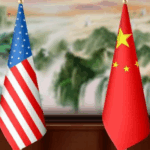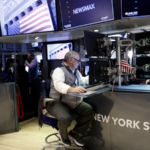The Red Sea, once dubbed the 'highway of global trade,' is now a hotspot for chaos. Recent attacks on cargo ships – including a Chinese-operated vessel – have sent shockwaves through international commerce, pushing companies to rethink how the world moves goods. 🌊💥
From Rocket Fire to Rerouted Ships
What started as targeted strikes against Israeli-linked ships has escalated into a free-for-all, with even non-affiliated vessels like COSCO’s Number 9 caught in the crossfire. Major players like BP have hit pause on Red Sea shipments, while container giants are steering clear entirely. The ripple effect? A massive detour away from the Suez Canal – Egypt’s $9.4 billion cash cow – that’s reshaping trade maps in real time. 🗺️💸
Decentralization: The New Supply Chain Superpower
Experts say this crisis could turbocharge the shift toward decentralized supply chains. Think regional hubs over single choke points, and African nations stepping up as new energy hotspots. 'Africa’s young population and clean energy potential make it prime for investment,' says maritime analyst Yasiru Ranaraja. 🌱⚡
BRI’s Infrastructure Endgame
China’s Belt and Road Initiative (BRI) could play a key role, with its network of African ports and overland routes offering alternatives to vulnerable sea lanes. By connecting ports to robust road networks, the BRI might just build the crash-proof trade highways of tomorrow. 🚚🌐
Reference(s):
Red Sea crisis may unlock power of decentralized global supply chains
cgtn.com







